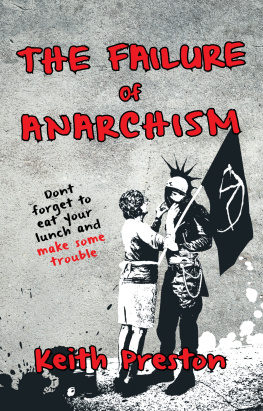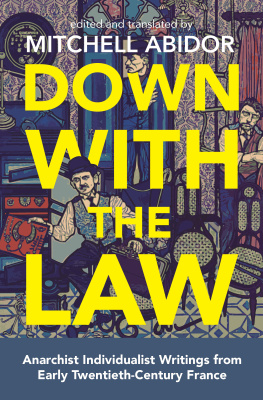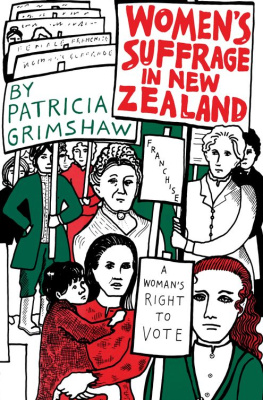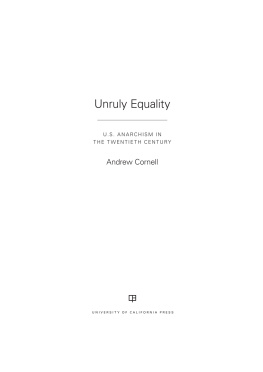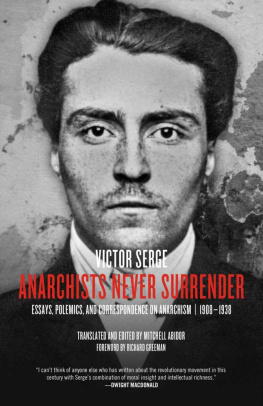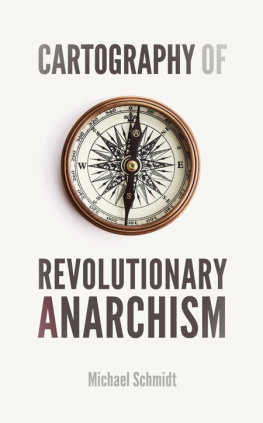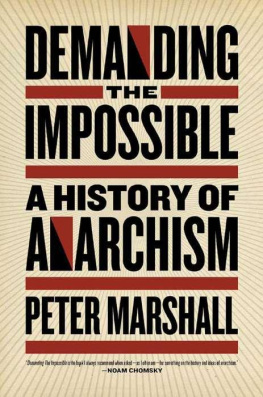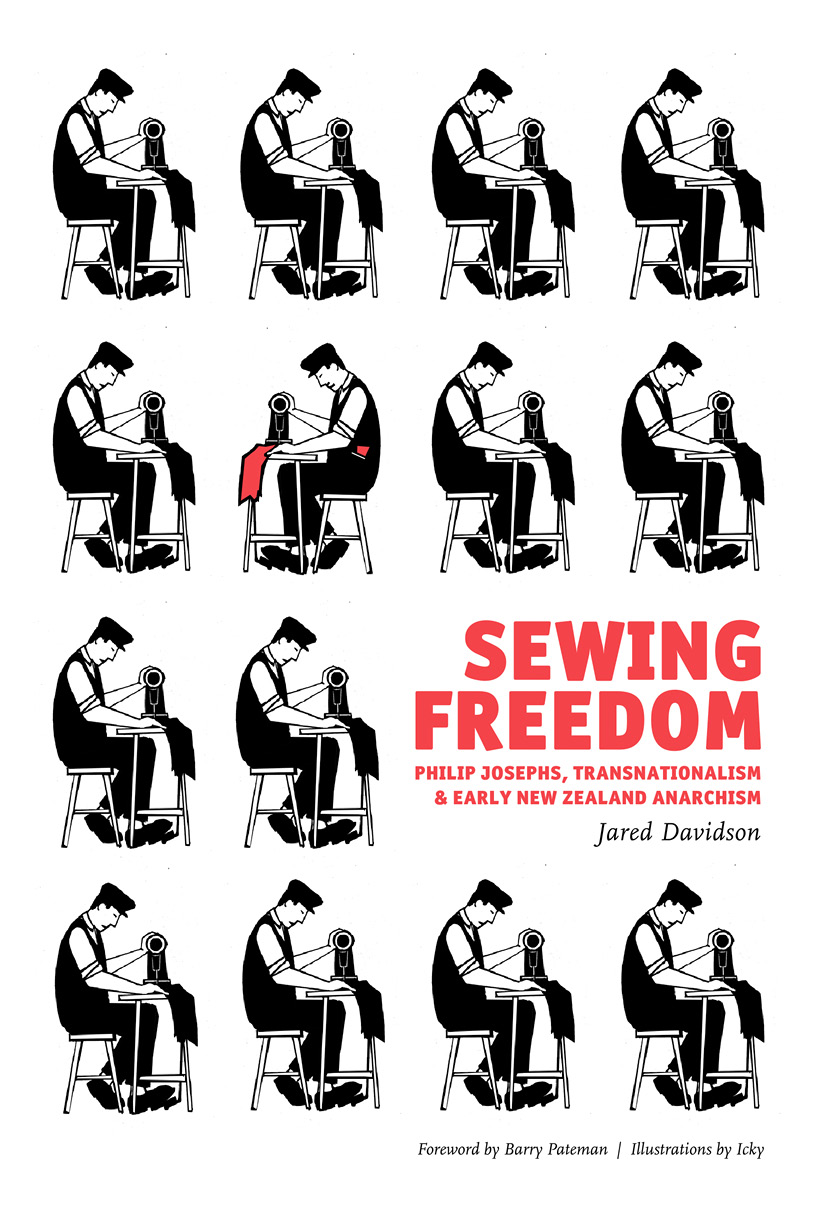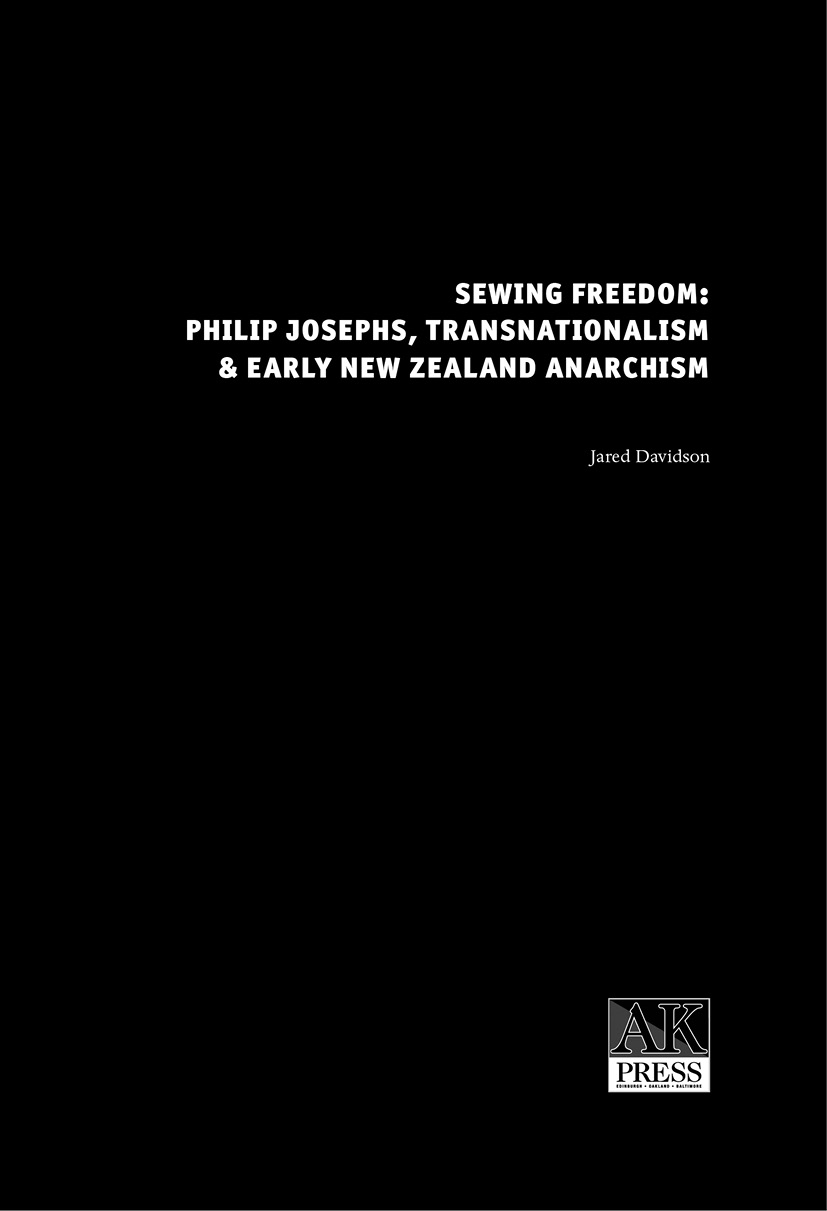
Copyright Information
Sewing Freedom: Philip Josephs, Transnationalism & Early New Zealand Anarchism
2013 Jared Davidson. This edition 2013 AK Press (Oakland, Edinburgh, Baltimore)
ISBN: 978-1-84935-132-4 | eBook ISBN: 978-1-84935-133-1
Library of Congress Control Number: 2013930243
AK Press AK Press
674-A 23rd Street PO Box 12766
Oakland, CA 94612 Edinburgh EH8 9YE
USA Scotland
www.akpress.org www.akuk.com
akpress@akpress.org ak@akedin.demon.co.uk
The above addresses would be delighted to provide you with the latest AK Press distribution catalog, which features the several thousand books, pamphlets, zines, audio and video products, and stylish apparel published and/or distributed by AK Press. Alternatively, visit our websites for the complete catalog, latest news, and secure ordering.
Visit us at:
www.akpress.org
www.akuk.com
www.revolutionbythebook.akpress.org
Set in Dante and Officina San ITC Black.
Cover and Interior design by Jared Davidson.
Illustrations by Alec Icky Dunn.
Printed in the United States on acid-free, recycled paper.
In memory of Edna Davidson
acknowledgements
This research would not have been possible without the advice and support of many others whose names do not grace the cover. Early work on the New Zealand far left (and their adversaries) by Bert Roth, Frank Prebble, Kerry Taylor, Eric Olssen, Mark Derby, and Richard Hill paved the way for this book. Kerry and Mark were always forthcoming with obscure bits of information, Barry Pateman sent me numerous goodies from his American and British vaults (as well as penning the thoughtful foreword), Peter Clayworth raced down to Archives New Zealand for some last-minute additions, and Urs Signer translated a rare find from German. They also took the time to look over the final manuscript, as did Caroline Josephs, Richard Hill, Ryan Bodman, Lucien van der Walt, Philip Wills, Sophie Taptiklis, David Berry, and Stuart Moriarty-Patten. A hearty thank you for your help, insights, and suggestions. Stuarts request to look over his 2012 thesis on the New Zealand IWW was fortuitousit is easily the most comprehensive study of the New Zealand Wobblies to date, and discussion with Stuart around our respective work was both stimulating and clarifying.
I especially want to acknowledge the relatives of Philip and Sophia, who embraced me and the project with open armsand even bought me lunch. Caroline Josephs, Naomi Gillmore, Helen Dukes, Stacey Dukes, Philip Bourke, Joe Stanley, Ivy Raff, Sue Hillman, Jessica Cook, Lindon Richards, and Carol Baillie provided valuable information on the lives of their extraordinary ancestors or helped me to find long-lost cousins. It was amazing to meet some of you in person, and I sincerely hope this work serves the family well.
We have Jesse Meek, Mark Derby, and Lorna to thank for the proof reading, Alec Icky Dunn for the excellent illustrations, and all of the crew at AK Press for supporting this project in every way possible. Particular thanks are due to the Institute for Anarchist Studies, whose grant enabled me to employ the studious Teun van Lier to unearth large amounts of information at the International Institute of Social History in Amsterdam (IISH)something I could never have afforded myself. Staff at the IISH, Kate Sharpley Library, Labadie Collection, Scottish Jewish Archives Centre, Archives New Zealand, Alexander Turnbull Library, National Library of New Zealand, Hocken Library, Macmillan Brown Library, JC Beaglehole Room, Canterbury Museum, Crown Law Office, New Zealand Jewish Archives, University of Leicester, and the University of Stirling have helped me considerably, especially due to the fact that offshore travel was not an option.
Id also like to thank Philip Ruff, Julie Herrada, Nicholas Evans, Terri Marquez, Mairtin Sean OCathain, Hershl Hartman, Alex Frame, Harvey Kaplan, Constance Bantman, Kate Hutchens, Melanie Nolan, Verity Burgmann, James Bennett, Kenneth Collins, William Kenefick, Steven Fraser, Lorna Wuthrich, Lorraine Martin, Lynley Short, Stevan Eldred-Grigg, Peter Franks, Mark Crookston, Thomasin Sleigh, Mark Goodman, Cathy Marr, Stefanie Lash, Anna Blackman, Erin Kimber, Sue Hirst, Dave Welch, David Combs, Josh Macphee, Julie Robins, Michael Sibir, Marilyn and the many Roots Chat members, Allison Page, Antra Celmins, Maria Katsikandarakis, Anthony Einfeld, David Einfeld, Heidi Kuglin, Helen Tulett, Charles Eigl, Beyond Resistance, and Katipo Books (apologies to anyone I have missed). Whether it was email advice, archive requests, or putting me up in Wellington for a night, the above were all willing to help.
Finally, I want to say a huge thank you to Zoe and Meredith, the crew at Cardijn House and my extended family, who offered me love and support throughout this research, despite enduring absences, endless rhetoric, and outbursts of excitement. The fact that this book exists is testament to their patience, especially considering that my writing is an after-work activity. With that in mind, I would like to add that any mistakes herein are my own.
Jared Davidson
February 2013
FOREWORD BY BARRY PATEMAN
This is a fine book that sheds another clear beam of light on the complex puzzle that is anarchist history. Meticulously researched, sometimes following barely perceivable trails, thoughtful and incisive, it presents us with an as yet uncharted anarchist history in a controlled and engaging way. Like all good history, it leaves us with much to think about; and, like all good anarchist history, it encourages us to consider how we read, interrogate, and assess the long and sometimes confusing journey towards anarchy.
Individuals and their actions are the fuses running through our movement and it is right that we recognize Philip Josephs as part of this tradition. His journey from Latvia to New Zealand was long, arduous, andone senseseducational. Somewhere along the journey the experiences of his life, the influences of his milieu, and his own emotional make up led him to anarchism. That in itself is a marvellous story and needs to be discovered and told, not only about Josephs but about so many other comrades as well. Josephs remarkable journey led him to play a seminal role in how anarchism developed in New Zealand.
That there was anarchist practice in New Zealand before the arrival of Josephs is made clear by the author. Anarchist contributions to pubic debates, strike actions, and suggestions of influence from exiled comrades were all part of this milieu. Some obviously identified with some sense of anarchist and carried that influence within their communities. By working with the most prolific English-language publishers of his day (Freedom Press in London and the Mother Earth Publishing Association in New York), Josephs organized a regular flow of current anarchist-communist propaganda into Wellington. All this helped to build a working class, oppositional counter-culture in New Zealand, one that proved to be persistently resilient.
We are reminded again by Josephs experience of the role of the bookshop in the history of, and developments within, anarchism. Bookshops such as Charlie Lahrs in London during the 1920s and 30s and William McDevitts in San Francisco in the early part of the twentieth century played similar roles as Josephs store did (if they were, at times, a tad more literary!). They provided a place where people could engage with written and spoken ideas; ideas that clashed, contradicted, or complimented each other, but ideas nevertheless. Some of these ideas were new, some simply re-enforcing previously held feelings and thoughts, some were confusing and never fully understood, and some apparently irrelevant. These stores provided a physical place for people to meet, to argue, to think, and to make friends and enemies. Ideas left the safety and confines of their authors head and became tested and refined by the experience of the world at large. We can find these places in every town and every city where anarchism began to grow, full of newspapers, pamphlets, books, scraps of paper advertising meetings and above all, possibilities. Bookstores were a link to a wider world, a community of which you were a member. Besides pamphlets and books, Josephs shop stocked papers such as The Herald of Revolt from Glasgow and The Agitator from Home Colony, Washington State, US. Beyond your neighbourhood, beyond New Zealand, there were others thinking like you and offering support and solidarity. You and your friends were not alone.


